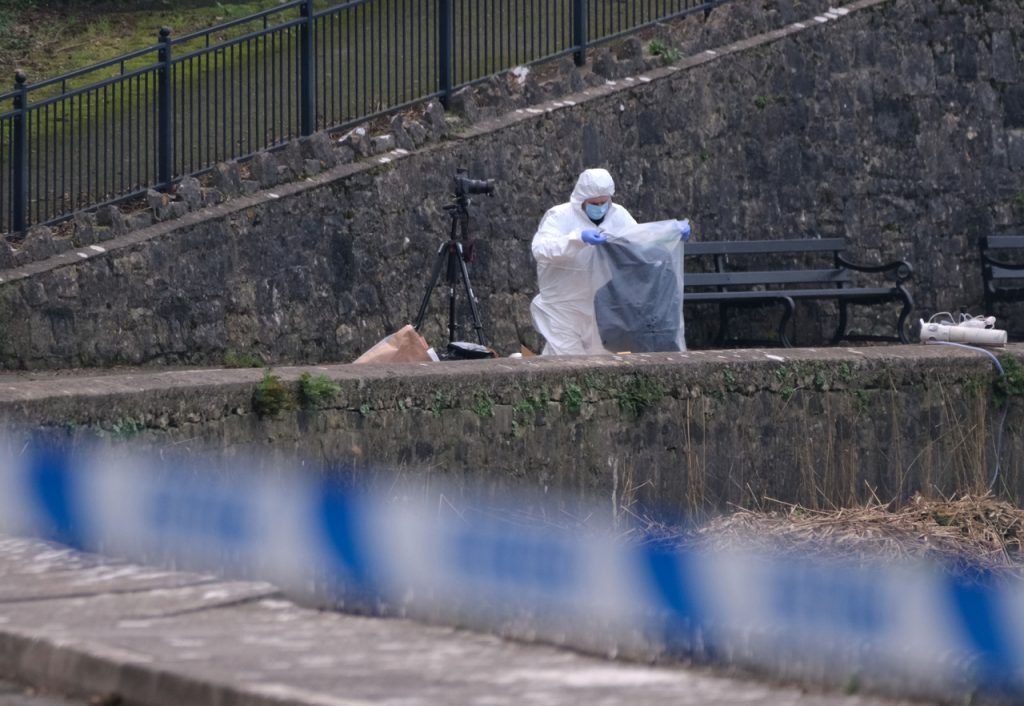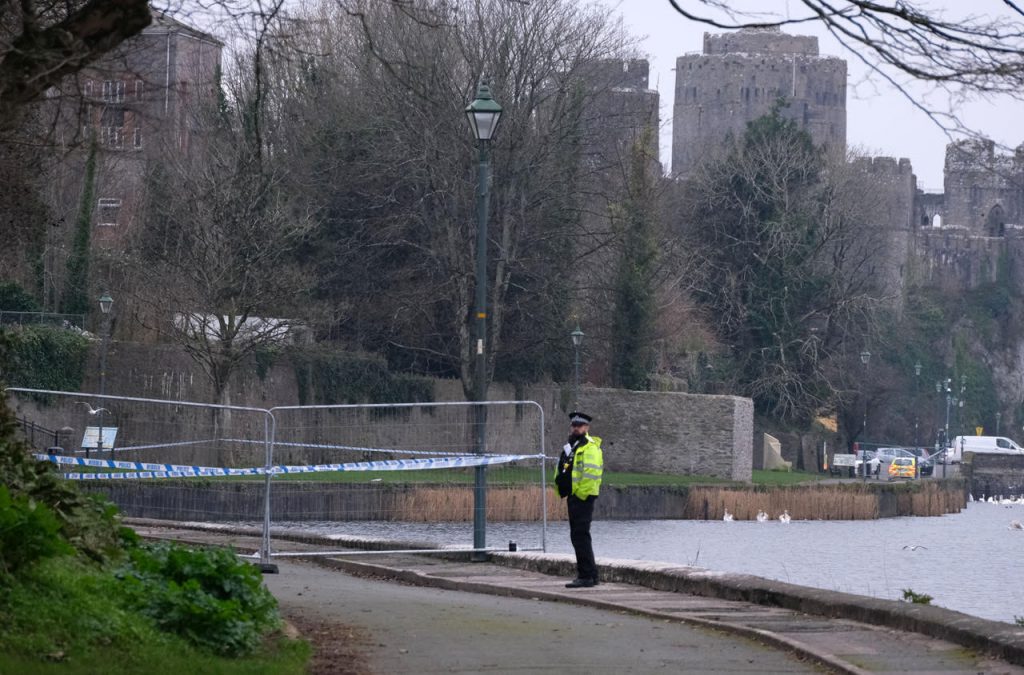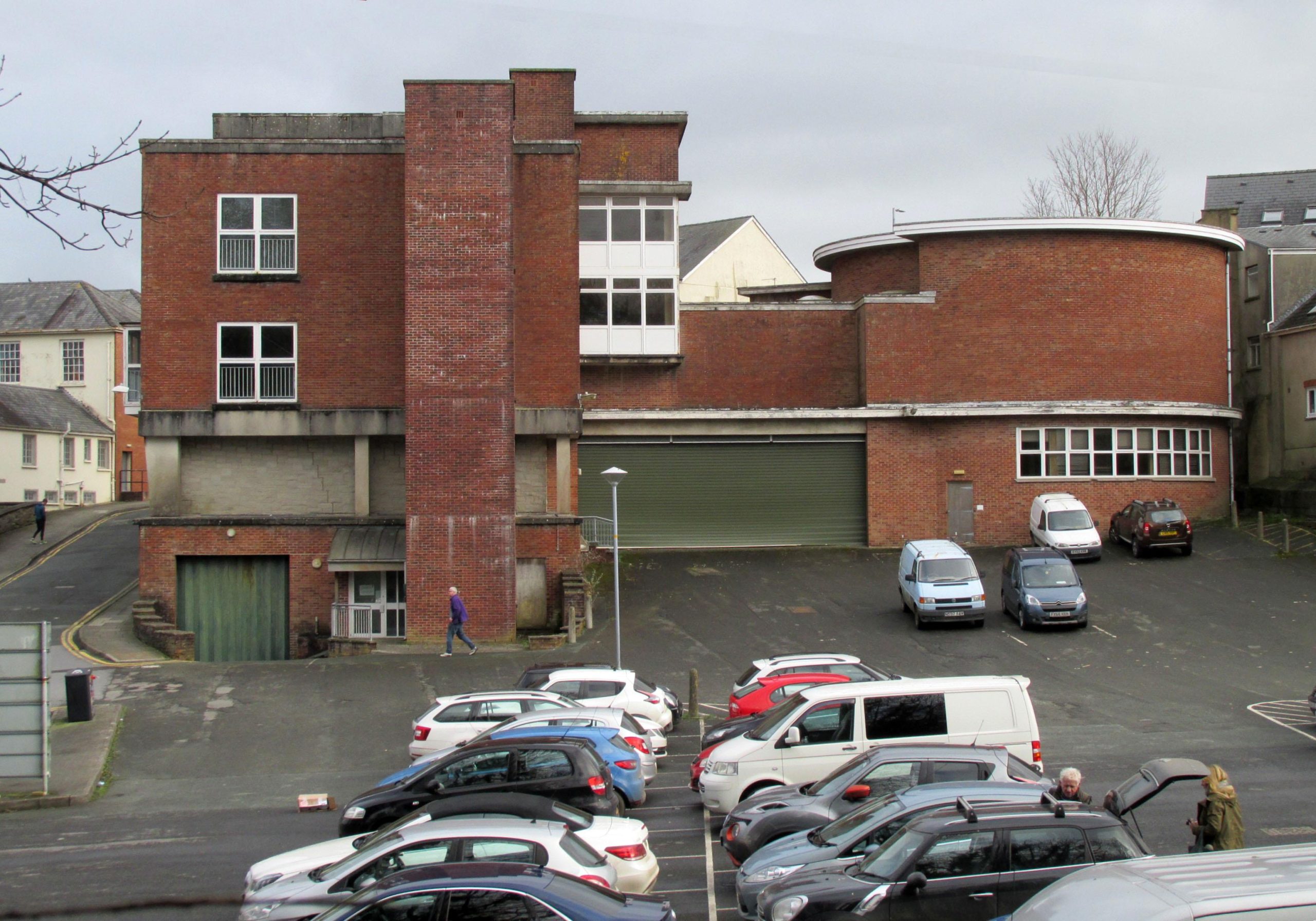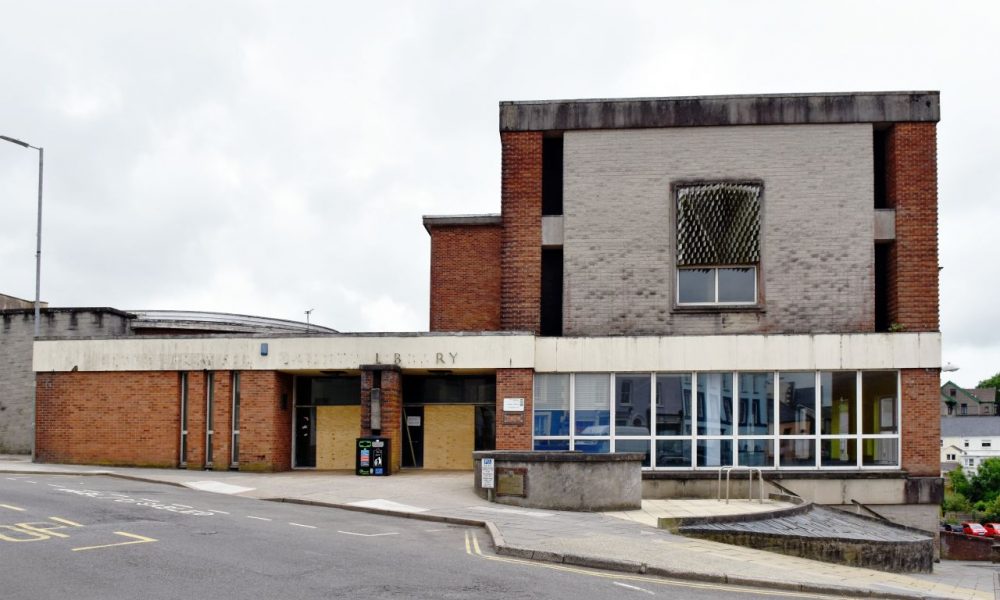News
Swansea Crown Court continues to consider if Lily Sullivan’s murder was sexually motivated

THE MAN who murdered an 18-year-old on a night out and left her body in a reservoir confessed to his girlfriend “I’ve strangled somebody”, a court has heard.
Lewis Haines killed Lily Sullivan after meeting her at Out nightclub, formerly known as Paddles nightclub, in Pembroke, south-west Wales, on December 16 last year.
The 31-year-old admits murdering Ms Sullivan, but denies it was sexually motivated.
A trial of facts is being held at Swansea Crown Court to determine whether there was a sexual element to the killing before Haines can be sentenced.

He could face a life sentence with a minimum term of 30 years if Judge Paul Thomas finds the killing was sexual, compared with a minimum term of 15 years if he does not.
The court heard how Ms Sullivan was discovered face down in Mill Pond, a two-mile long fresh water reservoir near the town.
She had been strangled and was no longer wearing the cream lace crop top she had been pictured in that night.
Just hours before, she had been seen partying with friends in the club where she had met Haines through their mutual friend Charlene Jones.

In a statement read to the court, Ms Jones said: “I could tell he was trying to chat Lily up. He was buying her drinks and standing close to her.
“He was being very flirtatious with her. I think he wanted to have sex with her.”
After the club closed, Ms Jones said she saw Haines and Ms Sullivan walk away down the street together and shouted: “You’ve got a girlfriend and a baby at home. She’s only 18.”
CCTV footage shows Haines and Ms Sullivan ended up in Morgans Way, an alleyway leading to Mill Pond.
William Hughes QC, prosecuting, said “a substantial part of the incident” must have taken place there because it was the location where Ms Sullivan’s phone and Haines’ baseball cap were later found.
Two people living nearby the alleyway said they heard a man and woman arguing in the early hours of the morning, with one witness saying she heard a woman scream.
During this time, Ms Sullivan’s mother Anna – who was supposed to pick her daughter and friend Lara Wood up at 2am – was becoming concerned.
She eventually spoke to Ms Wood who told her she was no longer with Ms Sullivan.
After dozens of calls and text messages to her daughter, Ms Sullivan answered the phone and told her mother she would meet her at a nearby garage, but she never arrived.
She last spoke to her daughter just before 3am when Ms Sullivan answered the phone again and said she was just “minutes away”.

The phone call was cut off mid-sentence.
Sometime later Ms Sullivan’s mother said she saw a man walking casually past her car swinging his arms before his behaviour changed and he began wringing his hands, shaking his head and running across the road.
Mr Hughes told the court on Monday: “While she’d not seen him before, her description of the man is similar to Lewis Haines.
“The prosecution believe the person Anna Sullivan saw was her daughter’s killer.”
Haines arrived home at 3.40am and told his girlfriend Maisie John: “I’ve strangled somebody. They’re in Mill Pond.”
Ms John said Haines’ jeans were damp and he had blood on his arms.
She said he was “hysterical” and repeatedly asked to be taken to his mother’s house.
Admitting to her while in the car: “I think she’s dead.”
He later told his mother that Ms Sullivan had called him a rapist and hit him, and that he had strangled her, hit her and pushed her into the water.
Haines claimed to have tried to pull Ms Sullivan out of the water but said she was a “dead weight”.
Ms Sullivan was declared dead at 6.02am despite paramedics’ attempts to revive her.
A post-mortem examination revealed she had bruising to her face and had been strangled, but there was no evidence she had been sexually assaulted.
Central to understanding whether the crime was sexually motivated or not is when Ms Sullivan’s top was removed, the court was told.
The prosecution believe the bralette was removed while Ms Sullivan was on land.
Defence barrister John Hipkin QC said when the item arrived at the laboratory, it was noted as being “slightly damp”.
Crime scene investigator for Dyfed-Powys Police Alexander Morgan confirmed the top was dry when he recovered it, but said it was a cold day and he was wearing two pairs of gloves.
Haines, a father-of-one, of Flemish Court, Lamphey, previously denied murdering Ms Sullivan but pleaded guilty a week before his trial was due to begin.
On Tuesday (Aug 23) the court heard that on the white top Lily was wearing that was found by the Millpond, Mr Hipkins QC said there is absolutely no evidence to suggest it was forcibly removed.
It was explained that the area the top was located is an unlikely area for any sexual misconduct to have taken place.
Mr Hipkins QC said that the defendant did get into the water to try get Lily out, and the cutting off of the phone call at 2.47am does not assist the court in identifying whether any sexual misconduct was committed during the murder.
Prosecuting solicitor William Hughes QC summed up the prosecution’s case by saying there are several different strands in the case which suggest Haines was sexually motivated.
He highlighted two witness statements that had formed the views Haines had shown sexual interest in Lily on the night, and that he was warned off Lily more than once, including that he had a child and reminding him of the age difference between the pair.
Mr Hughes QC said that up to a point Lily was also prepared to have a degree of intermate contact, and in addition, Haines had admitted kissing Lily in the nightclub. Haines also accepts he kissed Lily down the lane.
In CCTV footage between 1.25am and 1.55am in Main Street there is a doorway to which Lily and Haines ‘absconded’ and it is not unreasonable to say there was some form of intimacy happening at that point.
Prosecution highlighted the evidence of Dyfed-Powys crime scene investigator Alex Morgan who found Lily’s jacket and Haines’ jacket in the alleyway, which were all dry. Prosecution argued that these clothes must have been removed in that location and that it was indicative some sexual activity increased in intensity at that point.
Mr Hughes QC said the actions to leave OUT nightclub, formally Paddles, towards the Millpond, were sexually motivated.
Judge Paul Thomas QC: “Two adults have been drinking, go off together down a dark secluded lane, they spend some time in a doorway together and they spend a long period of time down the alleyway.”
THE CASE CONTINUES
Community
New parking rules spark concern at Dew Street site

Residents question phone-only payments, rising permit costs and future of former library building
RESIDENTS in Haverfordwest’s upper town say new parking rules behind the former County Library on Dew Street risk excluding older and less tech-savvy drivers, as concerns grow over both rising permit prices and the uncertain future of the prominent community building.
The car park is owned by Ateb Group, which allowed free public use over Christmas. However, signs installed this week state that drivers must pay either by phone or online.
Campaigners say both options effectively require a smartphone or internet access, leaving some motorists without a practical way to pay.
Mike Daffern, acting secretary of the Dew Street Campaign, told The Herald: “Realistically these are the same method. Both depend on a phone. For many older people, or anyone without mobile data, that simply isn’t accessible.
“Government guidance says there should be more than one way to pay. Most car parks still offer cash or card. We feel this discriminates against some of the very people who rely most on town centre parking.”

Permit prices questioned
Residents also say they were previously informed that Ateb intended to mirror the charging structure used by Pembrokeshire County Council.
They expected this would reduce the cost of residential permits. Instead, several have reported being quoted figures more than four times higher than equivalent council permits, alongside what they describe as a 30 per cent rise on last year.
One nearby resident, who did not wish to be named, said: “We were told it would be in line with the council. When the price came through it was nowhere near. For some households it just isn’t affordable.”
The Herald has approached Ateb for clarification on its pricing structure and the choice of payment systems.
Building left in limbo

Beyond parking, frustration is mounting about the long-term future of the former library itself.
Planning permission to refurbish the site was granted in 2023, but residents say little visible progress has been made. There is speculation the housing association may instead base operations in Milford Haven following the closure of Meyler House.
Campaigners argue that if the building is no longer required for offices, alternative community uses should be explored rather than allowing further deterioration.
A petition signed by ninety-five locals has been submitted to Cadw requesting the structure be considered for listing.
The request is backed by Royal Commission on the Ancient and Historical Monuments of Wales and The Twentieth Century Society, both of which recognise its architectural significance as an example of late 20th-century civic design. The building also features in Simon Phipps’ book Brutal Wales / Cymru Friwtalaidd, which celebrates modernist architecture across Wales.
Mr Daffern said: “It’s part of Haverfordwest’s story. Even people who don’t love the look of it accept it’s an important public building. Leaving it empty helps no one.”

Temporary arrangement
Public use of the car park may only ever be short-term. The 3.5-acre site, including the former library, was sold by the council for £250,000 in 2022.
A consultation held in early 2024 on potential redevelopment proposals drew criticism, with some residents describing suggested housing plans as “cut-price” and out of keeping with the conservation area surrounding the historic upper town.
No formal planning application has yet been submitted.
Residents say clearer communication is needed on both the future of the land and day-to-day parking arrangements.
Mr Daffern added: “People understand the site will change one day. But while it’s open, it should be fair and accessible. All we’re asking for is common sense and proper engagement with the community.”
international news
Mandelson quits Labour over Epstein controversy

Former cabinet minister says stepping down is ‘in best interests of the party’ as questions raised over historic payments
LORD MANDLESON has resigned his membership of the Labour Party, saying he does not want to cause “further embarrassment” following renewed controversy over his past links to convicted sex offender Jeffrey Epstein.
The former cabinet minister and one-time UK ambassador to the United States confirmed his decision in a letter to Labour’s general secretary after fresh documents released by the US Department of Justice appeared to reference him in connection with Epstein’s finances.
The files suggest that three payments of $25,000 — totalling $75,000, about £55,000 at today’s exchange rates — were allegedly made to Peter Mandelson in 2003 and 2004.
Lord Mandelson said he had “no record or recollection” of the transactions and believes the allegations may be false, but intends to investigate the matter himself.
In his resignation letter, he wrote that he felt “regretful and sorry” to be linked again to what he described as the “understandable furore” surrounding Epstein.
He added that stepping down from party membership was the responsible course of action while he reviewed the claims.
“I do not wish to cause further embarrassment to the Labour Party,” he said. “I have dedicated my life to the values and success of the party and believe I am acting in its best interests.”
Ambassador role ended
Lord Mandelson had been appointed the UK’s ambassador to Washington by Prime Minister Keir Starmer in December 2024.
However, he was removed from the post last year after earlier revelations about his past friendship and contact with Epstein, including emails showing communication after the financier’s 2008 conviction.
The latest release of files has also included photographs said to show Lord Mandelson alongside an unidentified woman. He said he could not place the location or circumstances of the images.
There is no suggestion that appearing in the documents or photographs indicates criminal wrongdoing.
‘Deep regret’
Earlier this weekend, Lord Mandelson reiterated his regret for ever having known Epstein and apologised “unequivocally” to the women and girls who suffered abuse.
“I want to repeat my apology to the women and girls whose voices should have been heard long before now,” he said.
Epstein died in prison in 2019 while awaiting trial on sex trafficking charges, but investigations into his network of associates continue to generate political fallout on both sides of the Atlantic.
Labour has not yet issued a detailed statement beyond confirming it had received Lord Mandelson’s resignation.

Health
Doctor struck off after sexual misconduct findings at Withybush Hospital

Hospital medic erased from register for second time after tribunal finds abuse of trust and repeated inappropriate behaviour
A DOCTOR who worked at Withybush Hospital has been struck off the medical register after a tribunal found he sexually harassed junior colleagues and abused his position of trust.
Dr Velmurugan Kuppuswamy was erased from the register by a panel convened by the General Medical Council following findings that he made inappropriate sexual comments, engaged in unwanted physical contact, and displayed what was described as a pattern of sexually motivated behaviour towards more junior members of staff.
The Medical Practitioners Tribunal Service heard the misconduct occurred over several weeks between August and September 2021 while he was working at the Haverfordwest hospital.
The panel concluded he made inappropriate remarks to female colleagues at a social event and touched staff without their consent. His conduct was described as repeated, targeted, and exploitative of the power imbalance between senior and junior medics.
Catherine Moxon, chairing the tribunal, said the behaviour represented a clear abuse of his professional position and a serious failure to maintain appropriate boundaries.
The tribunal found his actions undermined colleagues’ dignity and confidence and risked damaging public trust in the medical profession.
Although Dr Kuppuswamy denied the allegations and pointed to his clinical competence, the panel ruled the misconduct was serious, persistent, and not easily remediable. Erasure, it said, was necessary to protect the public and maintain confidence in doctors.
His name has now been removed from the medical register with immediate effect.
Troubled history
This is not the first time Dr Kuppuswamy’s fitness to practise has been called into question.
Tribunal records show he was previously struck off in 2012 after being found dishonest during an application and interview for a postgraduate cardiology training post at an NHS deanery in England.
The earlier hearing found he falsely claimed to have submitted a Doctor of Medicine thesis, said he was a member of the Royal College of Physicians, and stated he had passed a practical clinical skills assessment.
He initially admitted the deception before retracting parts of his account. The tribunal concluded he had maintained dishonest accounts and wrongly accused another witness of misleading evidence.
He was erased from the register and returned to India, where he later worked at a cardiac hospital.
Return and fresh concerns
In 2020, he successfully applied to be restored to the UK register despite opposition from the GMC, which raised concerns about the timing of his remorse and the lack of independent evidence about his overseas work. The regulator also noted he had not undertaken ethics training.
At the time, a tribunal accepted his assurances that he had changed, describing his evidence as “compelling, heartfelt and genuine,” and concluded that a well-informed member of the public would not be concerned about his return.
Shortly after being reinstated, he began working shifts at Withybush Hospital, part of Hywel Dda University Health Board.
Within months, the fresh allegations that have now led to his second erasure emerged.
The health board has not publicly commented on the outcome of the hearing.
-

 Health4 days ago
Health4 days agoConsultation reveals lack of public trust in health board
-

 News5 days ago
News5 days agoCaldey still unsafe, survivors warn — despite Abbey’s reform claims
-

 Community5 days ago
Community5 days agoPembrokeshire students speak at national Holocaust Memorial Day event
-

 News7 days ago
News7 days agoWales warned against single police force as Lib Dems cite Scotland ‘lesson’
-

 Crime7 days ago
Crime7 days agoMilford Haven man appears in court charged with burglary and GBH
-

 Business7 days ago
Business7 days agoDuke of Edinburgh Inn in Newgale on the market for £325,000
-

 Local Government7 days ago
Local Government7 days agoPembrokeshire council house rents to increase this year
-

 Local Government6 days ago
Local Government6 days agoTribunal over former Neyland councillor’s conduct adjourned



































